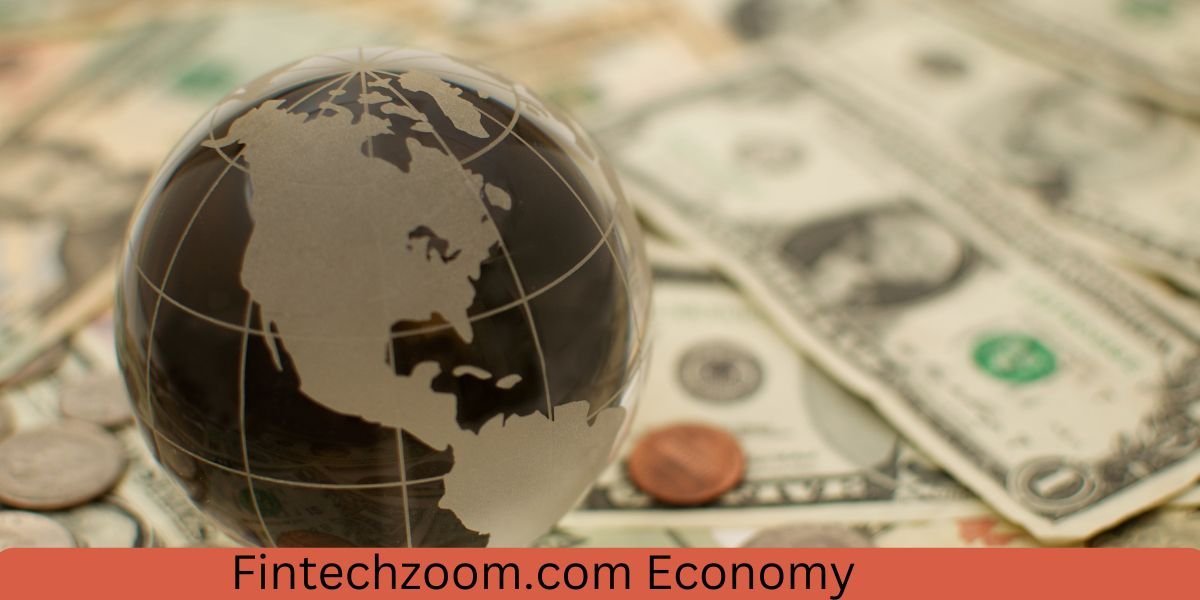The fintechzoom.com economy is a revolutionary domain where advanced technology meets traditional finance, transforming the way financial services are delivered and consumed. From mobile payments to blockchain, this digital ecosystem fosters innovation, efficiency, and inclusivity across the global financial landscape.
What is the Fintechzoom.com Economy?
The fintechzoom.com economy encapsulates the integration of technology into financial operations to create more efficient, transparent, and user-friendly financial systems. This dynamic sector leverages cutting-edge technologies such as artificial intelligence (AI), blockchain, and big data to redefine everything from banking and payments to insurance and investments.
Core Components of the Fintechzoom.com Economy
1. Digital Payment Ecosystems
The shift from cash to digital payments is at the forefront of the fintech revolution. Platforms such as mobile wallets, contactless cards, and online payment systems provide unparalleled convenience and speed for users.
Key Players in Digital Payments
| Platform | Market Penetration | Key Features |
|---|---|---|
| PayPal | 42% | Global payments, user-friendly apps |
| Stripe | 20% | Developer-friendly APIs, robust security |
| Square | 15% | Point-of-sale systems, analytics tools |
| Google Pay | 8% | Seamless mobile wallet integration |
Benefits of Digital Payments
- Faster Transactions: Instant processing times for local and international payments.
- Cost Efficiency: Reduced overhead compared to cash-based systems.
- Increased Security: Encryption and fraud detection systems protect transactions.
2. Blockchain and Cryptocurrencies
Blockchain underpins the fintechzoom.com economy with its decentralized ledger technology. Cryptocurrencies such as Bitcoin, Ethereum, and stablecoins enable peer-to-peer transactions without the need for traditional banks.
Read also: Orry Father | Toilet Tower Defense Value List | Sherry Dyson Biography | Fappelo
Applications of Blockchain
- Smart Contracts: Automating agreements without intermediaries.
- Cross-Border Payments: Real-time global transactions with minimal fees.
- Asset Tokenization: Converting real-world assets like real estate into digital tokens.
| Cryptocurrency | Market Cap (2024) | Primary Use Cases |
|---|---|---|
| Bitcoin | $1.1 Trillion | Store of value, investment |
| Ethereum | $600 Billion | Smart contracts, decentralized applications |
| Tether | $83 Billion | Stablecoin for trading and settlements |
3. Artificial Intelligence (AI)
AI plays a transformative role in the fintechzoom.com economy by automating processes, analyzing vast datasets, and delivering personalized services.
AI Applications in Finance
- Fraud Detection: Identifying anomalies and potential fraud in real-time.
- Robo-Advisors: Providing automated investment advice.
- Credit Scoring: Assessing borrower risk using AI-powered models.
4. Peer-to-Peer (P2P) Lending
P2P platforms connect borrowers and lenders directly, bypassing traditional financial institutions. This innovation increases access to credit while offering higher returns to investors.
Advantages of P2P Lending
- Lower Interest Rates: Reduced overhead leads to competitive rates for borrowers.
- Wide Accessibility: Loans available for individuals without extensive credit histories.
- Investment Opportunities: A diverse portfolio option for retail investors.
Read Also: contact thehometrotters .com | Clipart:2tvnqwgta7a= Grinch | height:ujln9wgg7f4= short a depth guide for short height
Key Benefits of the Fintechzoom.com Economy
1. Financial Inclusion
Millions of unbanked individuals globally can now access essential financial services via mobile apps and online platforms.
Statistics:
- Over 1.4 billion people joined the digital banking ecosystem in the past decade.
- Mobile money accounts surged by 25% in emerging economies between 2020 and 2023.
2. Enhanced Efficiency
Technological advancements streamline processes like loan approvals, payments, and risk assessments, reducing processing times from days to minutes.
3. Greater Transparency and Security
Blockchain technology enables tamper-proof records, fostering trust and reducing corruption. Additionally, advanced encryption ensures user data remains safe.
4. Cost Reduction
Automated solutions and AI-powered algorithms significantly lower operational costs for financial institutions, allowing these savings to benefit end-users.
Read Also: The Benefits of Plant Nurseries Webfreen.com | Classroom 6x Games
Challenges in the Fintechzoom.com Economy
Despite its promising potential, this innovative economy faces several challenges.
1. Regulatory Uncertainty
Global financial regulations struggle to keep pace with rapid technological developments. This inconsistency creates barriers for fintech adoption.
2. Cybersecurity Threats
As digital platforms expand, so do risks of hacking, data breaches, and cyber fraud. In 2023 alone, cyberattacks on fintech firms increased by 35%, emphasizing the need for robust security measures.
3. Trust and Adoption Barriers
Building trust among traditional customers requires consistent reliability and education about digital tools.
Read also: Salish Matter Age | Jodie Woods Age | How to Take a Screenshot on a Chromebook
Future Trends in the Fintechzoom.com Economy
1. Rise of Decentralized Finance (DeFi)
DeFi eliminates intermediaries, empowering individuals to access financial services directly. It is predicted to grow into a $1.5 trillion industry by 2028.
2. AI-Powered Hyper-Personalization
Financial products will become increasingly tailored, leveraging AI to offer customized services based on user behavior and preferences.
3. IoT Integration
Smart devices will enable real-time tracking of expenditures, savings, and investments, making finance more intuitive and accessible.
4. Green Fintech
Sustainable finance solutions will emerge, integrating ESG (Environmental, Social, Governance) criteria to address climate challenges.
FAQs About the Fintechzoom.com Economy
1. What is the fintechzoom.com economy?
It is the integration of advanced technology into financial processes, revolutionizing payments, lending, investments, and more.
2. How does blockchain influence fintech?
Blockchain provides transparency, security, and decentralization, driving innovations like cryptocurrencies and smart contracts.
3. What are the main benefits of fintech?
Key benefits include financial inclusion, cost reduction, efficiency, and enhanced security.
4. What are the biggest risks in this economy?
Challenges include cybersecurity threats, regulatory hurdles, and limited trust among traditional customers.
5. How will fintech evolve in the next decade?
Expect innovations in DeFi, green fintech, and AI-driven services to dominate the future of the fintechzoom.com economy.
Conclusion
The fintechzoom.com economy is a transformative force reshaping the global financial landscape. By integrating advanced technologies such as AI, blockchain, and digital payments, it offers unparalleled efficiency, transparency, and inclusivity. While challenges like regulatory uncertainties and cybersecurity risks persist, the ongoing innovations in decentralized finance, IoT integration, and sustainable fintech demonstrate the sector’s immense potential.
As this digital revolution continues to evolve, it will play a pivotal role in driving economic growth, fostering financial inclusion, and empowering individuals and businesses worldwide. Embracing the fintechzoom.com economy is not just a choice but a necessity for those aiming to thrive in the future of finance.









